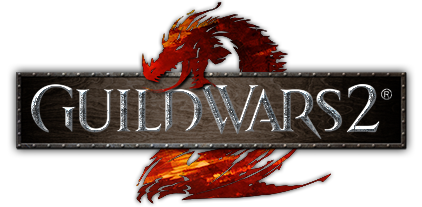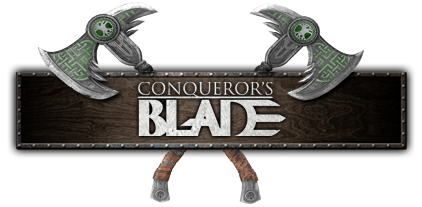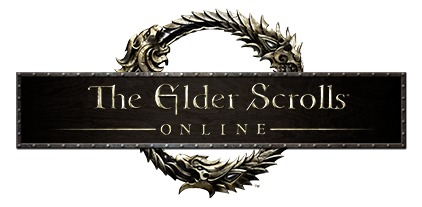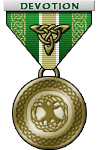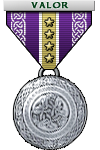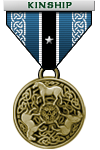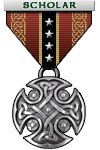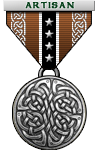Encumbrance
We've alluded to encumbrance frequently throughout the blogs and forum posts, but we've finally gotten to a place we're happy slinging around numbers. These are still general and subject to change, but should be in the right ballpark.
Each point of "encumbrance" represents an intentionally nebulous amount of weight and bulk. For compact items, usually a point of encumbrance will represent something in the neighborhood of five pounds, while more unwieldy items might have a worse ratio of real world weight to encumbrance rating. It's abstract on purpose, and meant to give us a little wiggle room on making things more or less encumbering as gameplay demands. Items can actually weigh a fraction of an encumbrance; for example, gems, herbs, and other such small items actually take 10 to 20 to make one encumbrance.
Each character has an encumbrance threshold:
- Up to that threshold, you take no penalties.
- Past that threshold, you take speed penalties proportional to how much you've exceeded the threshold (for example, a 50% speed penalty at 150% of your threshold).
- Once you've doubled your threshold you can't move at all (and can't take on any more items).
This is the primary limiter of how much you can keep in your inventory. If you carry many different light items it's possible you'll hit the practical items-in-inventory limit, but in normal circumstances you'll run out of encumbrance long before you've exceeded the "slots" available to you.
A starting character begins with an encumbrance threshold of 20 points. Permanent upgrades to your carrying capacity can add another 50 points, and long-term buffs can take you up another 25 points or more; a character fully invested in carrying capacity could get up to a threshold of around 100 encumbrance points. However, the easiest way for a character to improve his or her encumbrance threshold is to equip one or more containers.
Containers come in three types:
- Backpacks take up your back slot (and keep you from wearing a cape or cloak).
- Pouches take up your waist slot (and prevent you from wearing a belt).
- Bags take up one or both of your wondrous item slots (taking space used for spellbooks and other miscellaneous items).
Wearing a container increases your encumbrance threshold by an amount depending on the quality of the item (generally around 3 points for the simplest containers, up to 27 points at the top end). The containers aren't defined spaces which specifically include their own items, but instead directly increase the character's encumbrance threshold. For example, if a new player with a normal encumbrance threshold of 20 had one 3-point bag and a (hilariously heavy) 23-encumbrance item, it would fit in his inventory no problem. He'd be right at his encumbrance threshold, and removing the bag would only serve to bump him over the threshold by three points; nothing would be "in" the bag separately from his main inventory.
With the numbers given and the best items in all four slots, you can essentially double your maximum unassisted carrying capacity, capping out at around 200 encumbrance points. This is deliberately far less than what might be expected compared to the tabletop game's high-end bags of holding andportable holes. Unlike the tabletop game, we don't expect a handful of doughty adventurers to have to haul away a dragon's hoard all in one go. And, practically, we don't want one individual to be able to transport the entire monthly output of a settlement to market. When you want to transport goods at that level, you'll want to use the caravan system...
...which we'll leave as a tease for now, because there is a lot of work we have to do on that system before we can commit to any details.
Looting
We've been having some very long discussions around here lately trying to balance the competing desires of PvE players, PvP players, and the good of the economy as a whole. When you're the one who died, you'll probably want to hang on to everything you're carrying. When you've killed someone, you naturally expect to take everything your target was carrying, and especially want whatever it was you risked reputation loss and death to fight for. Both these desires clash with a broader game principle: The desire to keep the game economy healthy. In order to avoid runaway inflation or deflation, it's important for items to fall out of circulation at a manageable rate.
Eventually, we reached the following compromise between the three agendas. This replaces all previous information in the blogs and forums on PvP looting:
- When you die, approximately 25% of unthreaded items on your body are immediately destroyed. We're still hammering out exactly which 25%, but it's probable that items you've acquired more recently will be more likely to survive. This destruction occurs whether or not you get resurrected in place or have to respawn. (We don't want you to lie on the ground being bored as you wait for a helpful cleric to spare you the expense of respawning.)
- You keep all your threaded gear whether you come back through a local resurrection or respawn at the nearest shrine you're bound to. Threading still works pretty much the same as previously described (but see Item Decay, below).
- Looting your corpse is a three-second action that's interrupted by any damage against the would-be looter (both the three-second timer and the act of browsing through your surviving inventory can be interrupted).
- During the first five minutes of your death, we check to see who's attempting to loot you and give the Criminal flag to anyone that didn't have looting rights to your body. (Loot ninjas are illegal everywhere. Besides, we're simplifying flags, and Thief seemed mostly redundant).
- After those five minutes, the corpse "unlocks," and bystanders can safely assume the rest of the dead character's inventory is free to anyone.
- The previously dead character always has looting rights to his or her own corpse, and those who did the most damage to the character and their party members are also given loot rights. We're still working out the specifics of who gets loot rights when a lot of people contributed to your death; if you died in a one-on-one fight, or a whole party-on-one fight, your killer(s) certainly get looting rights.
- Anyone who opens your loot window sees all the remaining unthreaded items on your body that were not destroyed when you died, and may take any or all of it.
Compared to previously outlined systems, this means that everyone loses a consistent amount of stuff on death, so we can keep that amount low. (Previously, death caused a 75% loss if you got looted or 0% if you made it back to your body first.) The ultimate check on economy inflation should be similar. Bandits can more confidently choose their targets based on an assessment of their carried wealth, since they know they'll see most of the potential loot instead of a small portion. Defeated players are likewise more encouraged to return to their corpses, because the encumbrance system discourages bandits from taking everything, and most carried gear and goods survive death.
Item Decay
Previously, we mentioned that we hoped to avoid the concept of item damage. But the more we thought about it, the more we figured that there would be a certain class of item (primarily weapons and armor) that would always be threaded and thus never leave the economy. After a certain point, weaponsmiths and armorsmiths would be much less in demand than other crafting types due to a saturated market—mdash;when everyone has the stuff they want and never loses it, crafters go out of business.
So now, every time you die, your threaded items lose a point of durability. Like with unthreaded item destruction, this happens whether you're resurrected or respawned. Items remain fully effective until they run out of available durability—mdash;loss of durability has no other effect on item function. Crafters can make items with bonus durability to increase the number of deaths they'll survive, although this is a tradeoff; an item that can survive more than the normal number of deaths has fewer keywords than a similar item of the same cost.
Decay is not a coin drain. You won't find a NPC in town who will fix your item for you so we can have another way to take extra money out of the economy. If you want to repair your item, you'll have to take it back to the same kind of crafter that made it in the first place, he or she will need to know the recipe for that item, and repairing it will take a proportional fraction of the original materials for making the item. Repair may still be a good idea—mdash;if you have a really exceptional enchanted weapon, repair is probably simpler and cheaper than commissioning a new one—mdash;but it's very similar to just using the damaged item as a component toward making a new copy of that item. Either way, the crafters continue to have work.
We're currently deciding on how many deaths is reasonable before an item is totally destroyed (without any repair), but it will likely be in the single or low double-digits. Decay should provide much more work for crafters of major gear. Additionally, it may create an interesting secondary market for damaged gear sold at a reduced cost, so more frugal players can get access to powerful items for a specific task.



